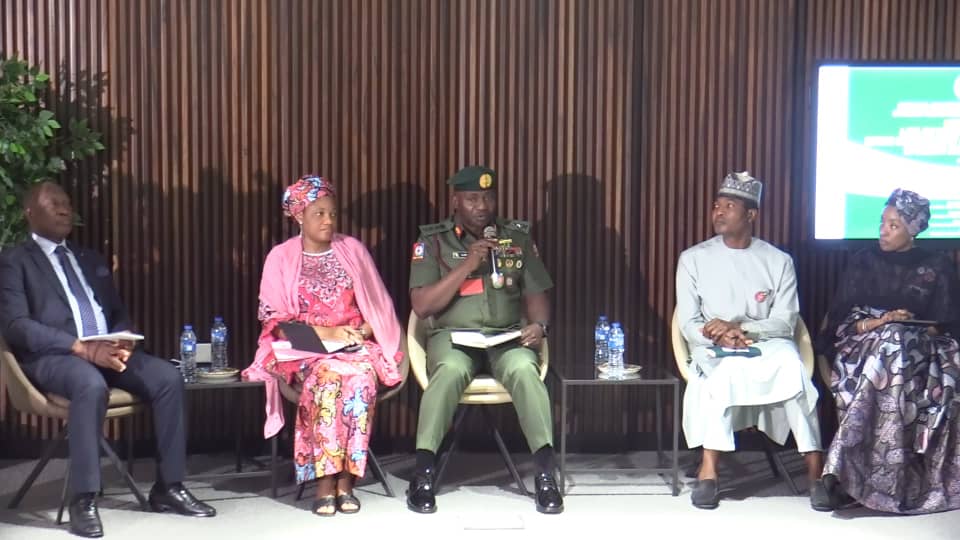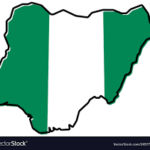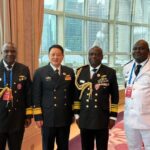By Chuks Oyema-Aziken
The Chief of Defence Staff (CDS), Gen. Christopher Musa, has charged the media to protect national interest through their reportage.
He gave the charge as a special quest honour at the Roundtable Discussion on Nigeria’s Security and National Interest organised by the National Counter Terrorism Center (NCTC) Office of the National Security Adviser (ONSA), for Defence Correspondents on Thursday in Abuja.
The CDS said that development journalism seeks to promote public awareness and understanding of defence as well as security issues, while holding governments, the defence sector and other stakeholders accountable for their actions as well as informing decision-making by policymakers and defence officials.
He said the adoption of development journalism approach allows for a more active collaboration with journalists and media organisations, enabling them to play a more effective role in promoting national cohesion and stability thereby advancing Nigeria’s national interest.
“Therefore, our national security cannot and should not solely be reliant on the strength of the Armed Forces of Nigeria rather it should be strengthened by Nigeria’s educated, healthy and socially cohesive population underpinned by development journalism.
“More so, the development journalism approach will not only require collaboration and dialogue among stakeholders, it will also focus on people centrism in the accomplishment of Nigeria’s national interest.
“This approach thus resonates with my leadership concept which is, “to Nurture a Professional Armed Forces of Nigeria that is People-Centric, Capable of Meeting its Constitutional Responsibilities in a Joint and Collaborative Environment” he said.
The CDS pointed out that defence beat should be tailored through a development journalism lens through various options available.
The options according to him, include the continuous prioritisation of human security, adoption of investigative reporting on policy impact and the real-world implications as well as promoting dialogue, inclusivity and stakeholders’ engagement through available fora.
The CDS stressed the need to advocate for sustainable practices through reporting on innovative practices in defence as well as using available data to tell the stories as evidence-based outcomes allows for a more informed public discourse.
According to him, “these options will engender trust and cooperation between the military, civil society and other stakeholders and enhance contextual understanding of local dynamics for enhanced social cohesion and effective collaboration.
“Today’s occasion presents me the rare opportunity to make a statement on the critical role of the media in fostering Nigeria’@s national security and defence matters thus necessitating collaboration to further Nigeria’s national security interest.
“This is in considering the propensity of development and sits at the intersection of national pride, global responsibility as well as the pursuit of peaceful coexistence and sustainable development,” he added.
Speaking earlier, the National Coordinator of NCTC, Maj.-Gen. Adamu Laka, noted that journalists were pivotal in shaping public perception and policy on critical issues of national security and interests.
The National Coordinator who said that journalists had the responsibility to report with accuracy, fairness and sensitivity in an environment that was often fraught with misinformation and heightened emotions assured that the centre would continue to collaborate with the media and other critical stakeholders to achieve and sustain the destruction of terrorist propaganda.
He stated the objective of this roundtable discussion was to foster an open and insightful exchange of ideas.
In his remarks, the Minister of Information and National Orientation, Mohammed Idris represented by the Director General, Voice of Nigeria, Jibril Baba Ndace urged the media to continue to support President Bola and the Armed Forces of Nigeria and other security agencies in the Renewed Hope Agenda.
He noted that beyond just reporting negatively about security, what reporters see sometimes that tends to make some of them very sad, is that they talk about the military and other security agencies as if they are not their brothers and sisters, people who decided to take the path that some of us are afraid to take.
Former Defence Spokesman, Maj.-Gen. Chris Olukolade, (rtd), in a paper he delivered at the occasion said that journalists must recognise the potential impact of their stories on public perception and national stability.
He stated that defence reporting should align with the broader goal of safeguarding national unity and security against any other things!
He also called for fact-checking practice in counter-terrorism reporting to avoid disseminating false or exaggerated claims that could inflame tensions or jeopardise security operations.



